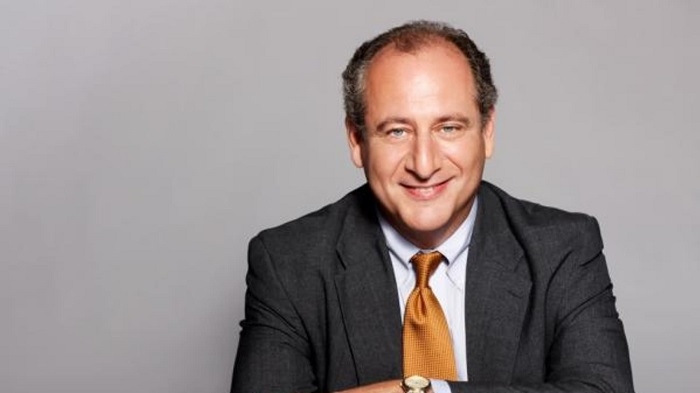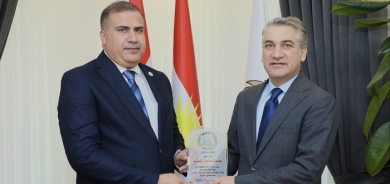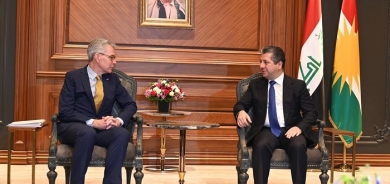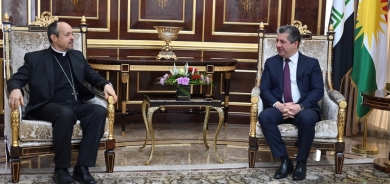Dr. David L. Phillips to Gulan: By rejecting the popular will expressed in the 2017 referendum, the US perpetuated conflict with no end in sight

Dr. David L. Phillips is the former director of Columbia University’s Program on Peacebuilding and Human Rights and founding director of the University’s Conflict Resolution Program. He is presently an adjunct professor at Georgetown University’s School of Foreign Service. In a written interview he answered our questions as the following:
Gulan: PM Barzani's travel has been deemed significant and he was very warmly received throughout Washington D.C. as he embarked on critical meetings with government officials." This is his first trip as prime minister since 2019, what is your take away of this trip?
Dr. David L. Phillips: The KRG has spent years cultivating cooperative relations in Washington. These relations are not only based on practical ways of working together. They are based on the fact that Kurds and Americans share values and a vision for the world where differences are resolved peacefully through dialogue. This principle is at the core of conflict resolution and good neighborly relations. Iraq and other counties in the region have a lot to learn from the Kurds.
Gulan: Iraqi government has been withholding KRG's budgetary share transfer, and during this visit a request made that the KRG get the allocated funding from Baghdad on a regular and timely basis, as this region is becoming more unstable as a result of these delays, to what extent the US needed to assist in this regard and to end this needless delay?
Dr. David L. Phillips: The US should signal Baghdad that it must honor pre-existing commitments. This can be done initially through quiet diplomacy. If unsuccessful, then the US must raise its voice to compel the government's actions. There are other ways of coercing the Government of Iraq to meet its obligations through the use of carrots and sticks.
Gulan: Since March 2023, the Kurdistan Region has been unable to export its oil via the pipeline connecting Iraq and Turkey, billions of dollars are being lost as a result. The US has talked about providing more support and assistance to PM Barzani, in your opinion to what extent US is willing or able to use its leverage and influence in Baghdad to resume oil exports from the Kurdistan region?
Dr. David L. Phillips: The Biden administration can use its influence with the GOI to encourage the unimpeded export of oil. This requires a consistent policy supporting free trade of hydrocarbons.
Gulan: A special reception was held by the US Chamber of Commerce to commemorate the arrival of Prime Minister Masrour Barzani to the US. Numerous American authorities, business executives, well-known investors, and people from the Kurdish diaspora in the US attended the event, do you expect the surge of economic ties between US and Kurdistan region?
Dr. David L. Phillips: Yes, hopefully. The Kurdistan Region of Iraq should develop a more diversified economy that's less reliant on hydrocarbons and which includes domestic manufacture of consumer goods and production of agricultural products.
Gulan: The Political Bureau of the Kurdistan Democratic Party (KDP) has issued a statement declaring a boycott of upcoming elections, citing concerns over constitutional violations and the integrity of the electoral process during the recent Iraq’s supreme court judgements, so how do you see the future relations between Iraq and Kurdistan region?
Dr. David L. Phillips: Dialogue must continue as the basis for improving relations. Dialogue needs to occur at an official level as well as between civil society representatives. Without dialogue, there can be misunderstanding and the escalation of conflict.
Gulan: In your opinion what US should and could have done differently with regard to Iraq and Kurdistan region? And what would be the well-though and constructive strategy for US to pursue from now on in this respect?
Dr. David L. Phillips: By rejecting the popular will expressed in the 2017 referendum, the US perpetuated conflict with no end in sight. It's not too late for the US to adopt formal state to state relations as the basis for improving the situation.















